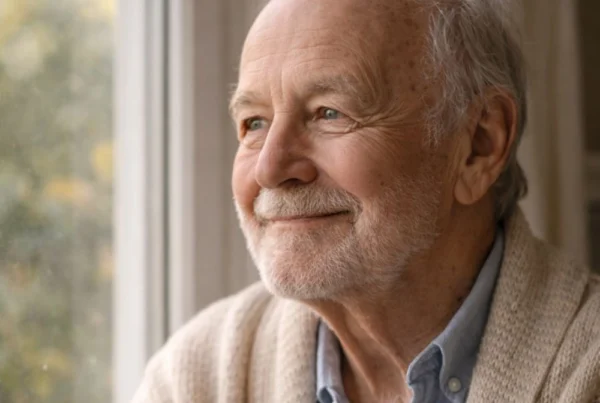Burnout is often described as a state of emotional, physical, and mental exhaustion brought on by prolonged stress or overwhelming expectations. Many people experiencing burnout feel trapped in a repetitive cycle – giving, depleting, and failing to recharge. Emilie and Amelia Nagosky in their book, Burnout: The Secret to Unlocking the Stress Cycle refer to the chronic stress cycle as a loop that needs to be broken in order to heal; if not addressed, it can perpetuate feelings of helplessness and burnout. By acknowledging and actively interrupting this cycle, we can begin to restore balance and resilience.
During these times, individuals often fall victim to a psychological phenomenon known as learned helplessness, where they feel powerless over their circumstances, no matter how hard they try. This feeling of futility and lack of control can lead to cognitive dissonance—an internal conflict between what you expect of yourself and what you’re actually experiencing.
When burnout sets in, the resulting mental patterns can be incredibly damaging, reinforcing feelings of inadequacy, frustration, and even depression. This article explores the connection between learned helplessness, cognitive dissonance, and perfectionism and how they exacerbate the experience of burnout. It also provides strategies to help you break free from these self-defeating cycles and regain control of your life.
The Cycle of Learned Helplessness
Learned helplessness, as defined by the American Psychological Association, occurs when an individual repeatedly encounters situations where they feel powerless to effect change, despite their best efforts. Over time, this leads to a deep-seated belief that no matter what actions they take, things won’t improve. This feeling of being stuck in an unchangeable situation can persist even when opportunities for change may exist.

In the well-known 1967 experiment by Overmier & Seligman, it was found that when dogs were subjected to an uncontrollable, unpleasant shock, they eventually stopped attempting to escape and simply lay down. As Staples (2021) notes that dogs are not stupid and they give up because it’s inefficient to invest energy into an impossible task.
Learned helplessness is not just an individual concern, but a systemic issue. When there are systemic barriers or discrimination, it reinforces this sense of powerlessness.
It took me a long time to accept that despite studying with the renowned Dr. Regula Burckhardt Qureshi in Ethnomusicology, who had an exceptional view of my scholarship, the reason my work remains unpublished is not just because the current authorities in the field don’t understand it. Rather, they recognize the power of my work and its potential to disrupt existing paradigms, which makes them insecure. Even after completing the requirements for a terminal Masters degree, the best scholars in the discipline who have made careers from writing on music and social justice and women’s music refused me a terminal Master’s degree when I left the Ph.D. program at Harvard in 2011. If that was not enough, my entire research project was plagiarized by a Harvard scholar who has been published and rewarded for this work while my work remains unpublished. What led to my feelings of learned helplessness is an active discrimination in the discipline of ethnomusicology that has been supported and endorsed by scholars who even made their way into my dissertation committee. A discipline that is so embedded in exploiting the natives could not accept a voice from culture becoming an expert voice in the field.
Lack of Support: The feeling that no one is there to help, or that seeking support is futile, and Unacknowledged Efforts, that is when your contributions go unnoticed or are undervalued, it can feel as though your efforts are pointless were the two main sources that fed into feelings of helplessness and loss of control. This learned helplessness creates a vicious cycle. The more powerless someone feels, the more they retreat into resignation, believing their circumstances will never improve. This feeds into feelings of despair and stagnation. An experience of this kind with systemic failures is disappointing and discouraging when you have reached the top in your field but struggling for bread and butter due to systemic neglect. Situations of these kinds enforce thoughts of failure and are deliberate in disempowering a brilliant individual.
- Thinking in Absolutes: Phrases like “I’ll never succeed,” “Things will never improve,” or “I can’t handle this” are classic examples of black-and-white thinking that distort reality.
- Internalized Failure: If your actions consistently don’t align with your personal values (such as feeling inadequate despite your best efforts), you may start to perceive yourself as a failure, even if the external circumstances are beyond your control.
- Ruminating on Past Mistakes: Instead of viewing setbacks as opportunities for growth, the cognitive dissonance caused by burnout may make you obsess over past failures, reinforcing negative self-beliefs.
Learned Helplessness and Burnout
The Clinical psychologist Lindsay Staples explains in Psychology Today’s article “Listen to Your Burnout,” learned helplessness can significantly contribute to burnout. This disruptive, uncomfortable feeling is on a mission to help you. Your emotions are keeping track of the little frustrations and indignities, even if you are not. Staples advises her clients to listen to their feelings of helplessness and identify its source. She writes,
“The best way to get rid of the feeling is to do as it asks: Find the hole in your fuel tank and fix it. You may be experiencing burnout from: a person at work, an unbalanced schedule, a toxic work culture, unclear boundaries, lack of reward or encouragement, a frustrating task, or overall lack of progress toward goals. This is where this article can’t help you. You have to consult with your burnout, not the internet, to identify what is depleting you.”
When you feel that nothing you do will make a difference, your thoughts can become overwhelmingly negative. This deepens the feelings of helplessness and hopelessness, making it harder to find motivation for change. Learned Helplessness Reinforces a Fixed Identity: Long-term exposure to situations beyond your control can cause your identity to become tied to your perceived failures. The belief that you should be able to manage everything adds pressure, reinforcing the idea that you’re not good enough or capable enough. This only perpetuates feelings of helplessness. Negative Self-Talk Becomes a Self-Fulfilling Prophecy: When you repeatedly tell yourself, “Nothing will ever work out,” it leads to inaction and disengagement. This reduces the likelihood of trying to change, reinforcing the belief that you’re powerless. This cycle keeps burnout going.
Breaking Free from Learned Helplessness
Although burnout can feel like an unbreakable pattern, there are ways to overcome the damaging effects of learned helplessness. Here are some strategies to help you navigate burnout and regain a sense of control:
- Challenge Negative Thoughts: When you catch yourself thinking in absolutes—such as “I’ll never succeed”—pause and ask yourself, “Is this really true?” Recognize when your mind is trapped in a cycle of self-defeating thoughts and take a moment to ask yourself: ‘Is this thought truly reflective of reality, or is it an exaggerated perception fueled by burnout?
- Identify What You Can Control: Learned helplessness thrives in environments where individuals feel they have no control. It’s helpful to remember that while some external factors may feel unchangeable, the smallest adjustments—such as setting clearer boundaries or carving out time for rest—can immediately empower you.”While some circumstances may be beyond your influence, focusing on areas you can control can help restore your sense of empowerment. Whether it’s setting boundaries, prioritizing tasks, or asking for help, small changes can make a significant difference. Break down overwhelming tasks into smaller, more manageable steps can also be helpful in regaining a sense of control.
- Embrace Imperfection: Perfectionism is often at the root of cognitive dissonance. When you allow yourself to make mistakes and learn from them, you create space for growth and resilience. Perfectionism only adds unnecessary stress to an already overwhelming experience.Let go of the need to be perfect and recognize that everyone experiences setbacks. Imperfection is a part of being human, and allowing yourself the space to be imperfect can reduce burnout.
- Break the Cycle with Action: When you feel stuck, taking small, intentional steps can disrupt the cycle of learned helplessness. Sometimes, the mere act of moving forward—even with small steps—can ignite a shift in your energy, helping you escape the inertia of burnout. Whether it’s reaching out for support, setting aside time for self-care, or saying no to something that doesn’t serve you, taking action—no matter how small—can help shift your perspective.
- Reframe Failure as Growth: Rather than internalizing failure, reframe it as an opportunity for growth. Rather than viewing setbacks as permanent failures, consider them stepping stones that reveal new insights or approaches for overcoming challenges in the future. Every setback is a lesson learned. When you shift your mindset to one of resilience, you can reduce the internal conflict that often leads to burnout.
- Seek Support: You don’t have to face burnout alone. Talking to a therapist, coach, or trusted friend can provide a fresh perspective and remind you that you’re not powerless. Support networks offer validation, emotional guidance, and strategies to help you navigate burnout.
Conclusion: Shifting Perspectives to Overcome Burnout
Burnout, fueled by learned helplessness, can feel overwhelming, but the shift starts when you challenge those negative thought patterns and take small, deliberate actions. The key is shifting your perspective—recognizing that you have control over parts of your life, that failure isn’t final, and that self-compassion is essential.
Dr. Claire Zammit gives us a new way to reframe our learned helplessness; she writes that women are now aligning themselves to a new north star: self-actualization. She invites brilliant women who feel under-valued by the patriarchal system to see themselves as among the first to pop — the “early popper!” She invites women to see themselves as pioneers, trailblazers, and visionaries. There’s a deep, undeniable impulse within you to reach higher, and you can’t ignore it. She writes that if you’re struggling financially, it’s not because you can’t just get a job—it’s because you’re seeking a way to live in alignment with your deepest values. If relationships feel difficult, it’s not because you can’t find someone—it’s because you’re searching for a soulmate who can meet you on all levels. If health challenges weigh on you, it’s because your care extends beyond yourself to the world around you, and prioritizing the needs of others can be draining. In doing so, Dr. Zammit invites you to transform learned helplessness into asserting that you will not settle for less and that you will strive to reach your north star.
When you find yourself lost in burnout, remember: the first step is to acknowledge that you have the power to reimagine this world. I believe in this idea, firsthand. In 2020, after serving as Music Faculty for semester at sea, when I did not find my academic expertise valued, I embarked on a dream journey to pursue a career in music composition and performance that won me various awards including the inaugural Women in Music Canada roll (2023) and led to ideal work as an Artist in Residence at Trico Chanemakers Studio, Mount Royal University in Calgary working on climate justice through the power of deep listening.
So, I invite you to take small, consistent actions, combined with the support you need, will help you reclaim your energy, restore your sense of self, and align your life with your values and well-being. You are not helpless, and you don’t have to settle for exhaustion or overwhelm. You are on the leading edge—ready to inspire not only your own transformation, but also that of others.
With time, support, and a commitment to breaking free from the mental traps that reinforce burnout, it’s possible to reclaim your energy, restore your sense of self, and create a path forward that aligns with your values and well-being. The first step is acknowledging that you have the power to change, even in the face of overwhelming circumstances.
By understanding and navigating learned helplessness, you can begin to heal and break free from the chronic stress cycle.







